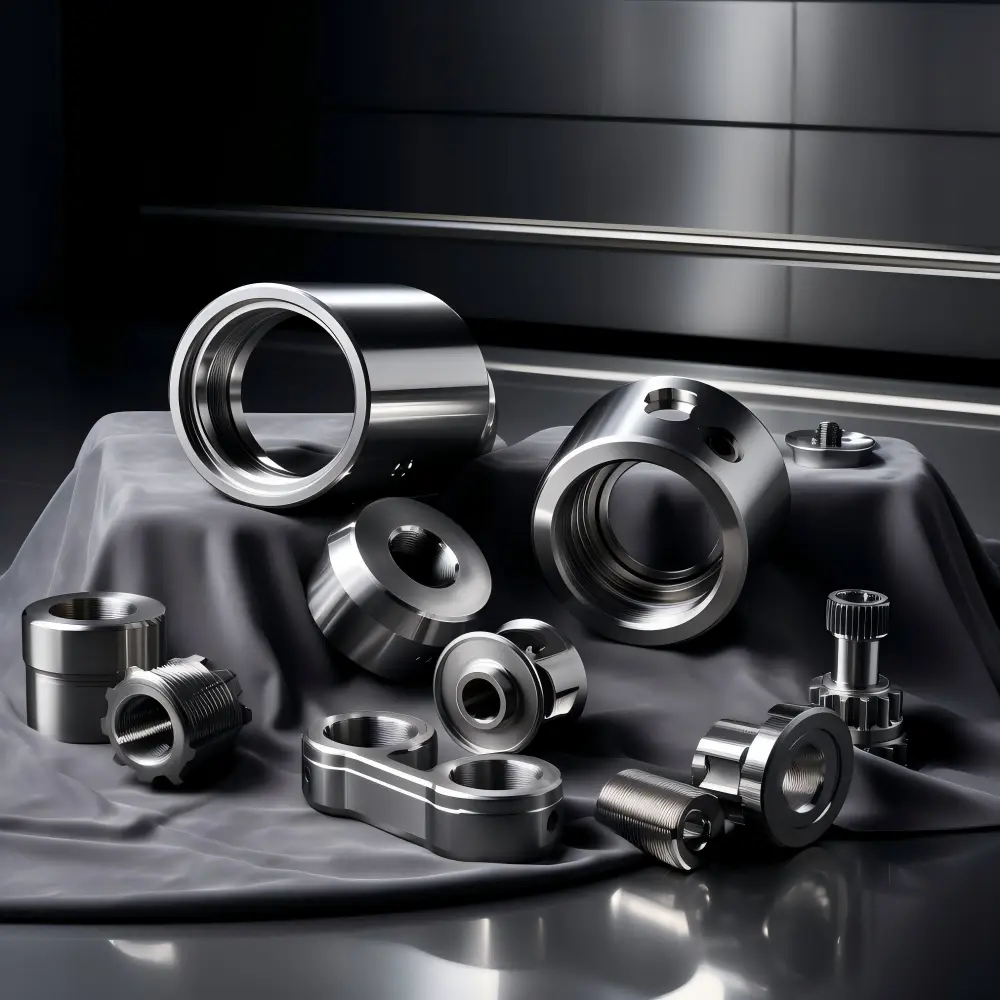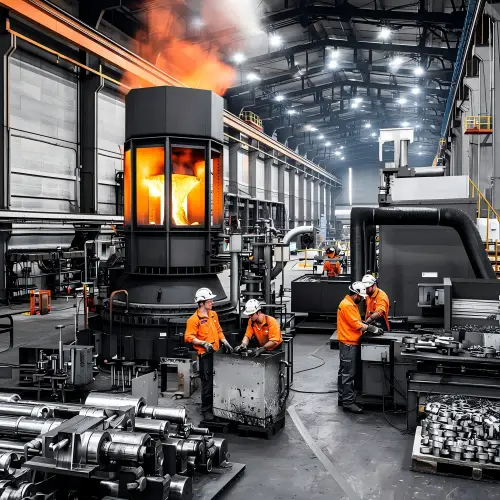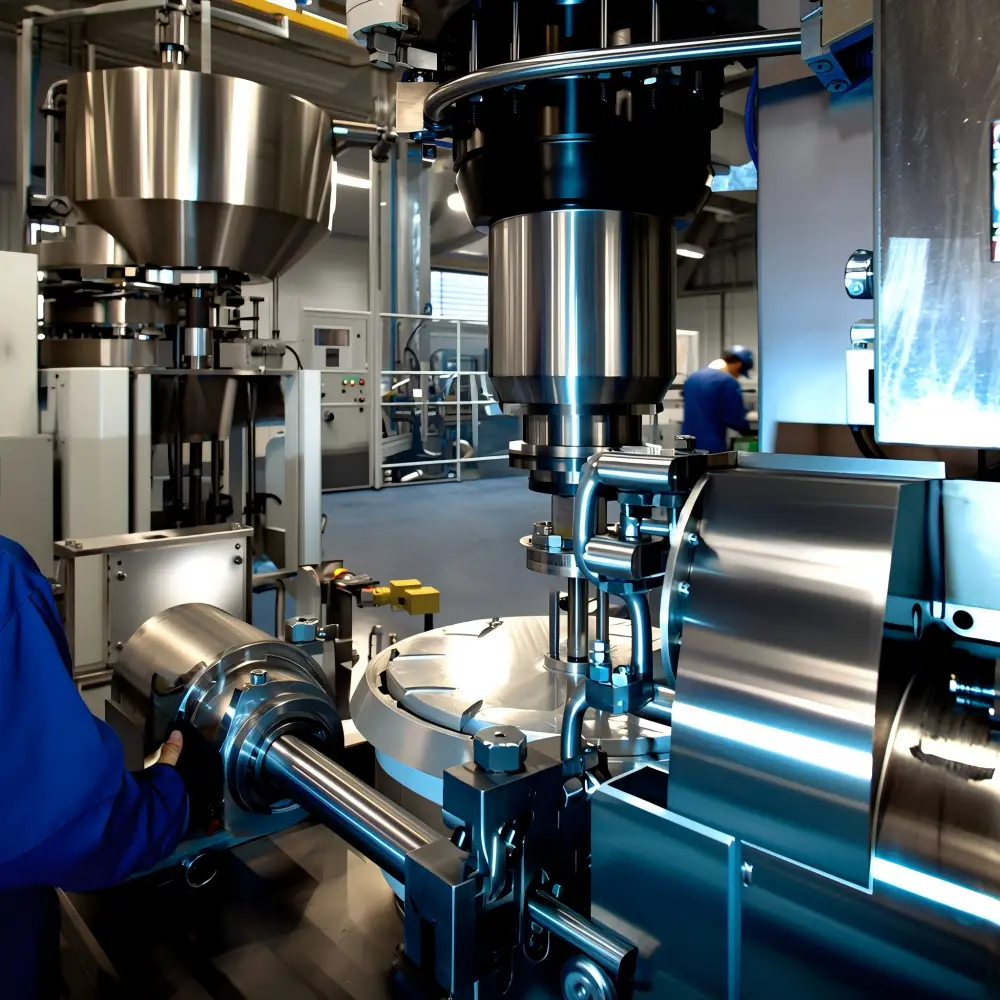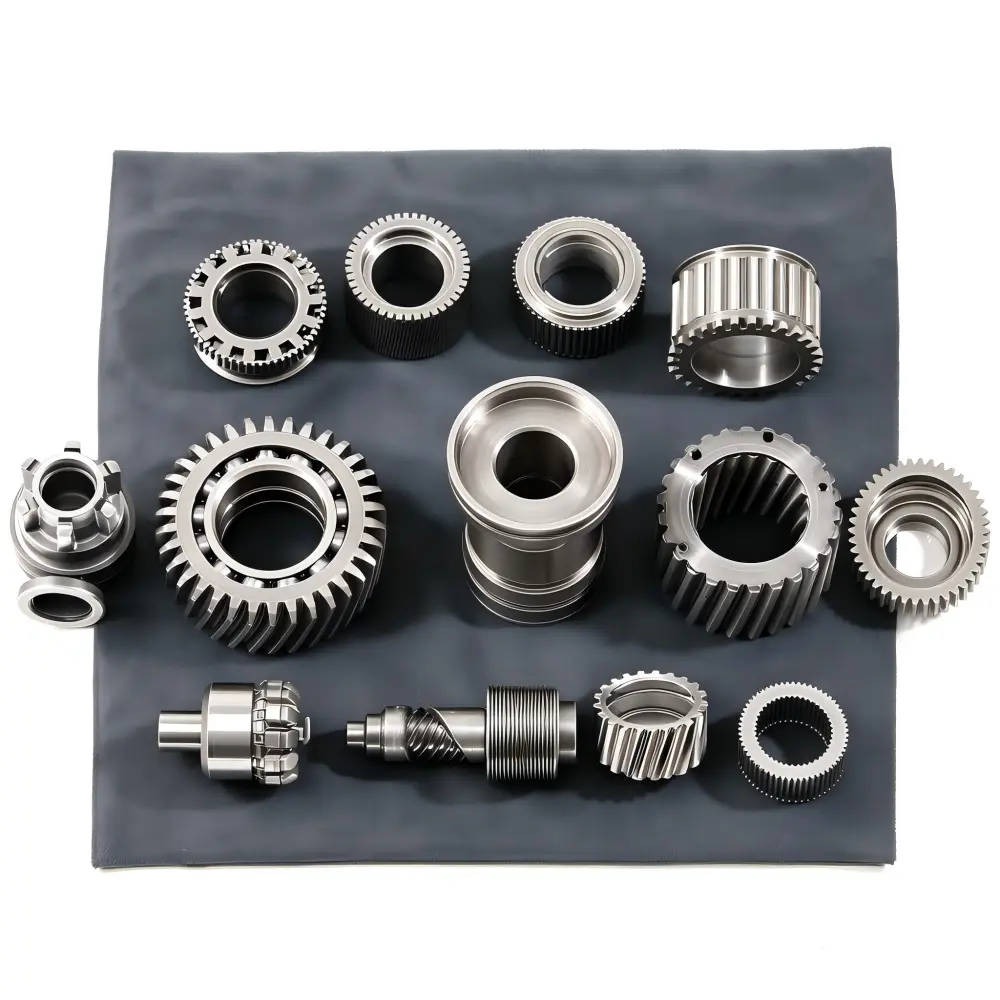Top Tips for Selecting Precision Casting Machining Services
Selecting the right precision casting machining services plays a critical role in your project's success. You need to ensure that the parts produced meet precise tolerances, such as ±0.005 inches for smaller parts and ±0.010 inches for larger components. This precision is essential in industries like aerospace, medical, automotive, and defense. Balancing quality, cost-effectiveness, and reliability becomes crucial. You must focus on these factors to achieve high-quality parts with smooth surface finishes and accurate dimensions. By doing so, you ensure that your project not only meets industry standards but also excels in performance.
Key Factors to Consider
Quality Standards
Importance of material quality and precision
When selecting precision casting machining services, you must prioritize material quality and precision. High-quality materials ensure durability and performance. Precision in machining guarantees that parts meet exact specifications. This is vital in industries like aerospace and medical, where even minor deviations can lead to significant issues. Conduct an internal audit of your company's requirements to determine what is most essential for your project.
Role of advanced technology in ensuring quality
Advanced technology plays a crucial role in maintaining quality standards. Modern machinery and tools enhance precision and efficiency. They help achieve tight tolerances and smooth finishes. By choosing a supplier with state-of-the-art equipment, you ensure that your products meet industry standards and excel in performance.
Cost Considerations
Balancing cost with quality
Balancing cost with quality is essential when selecting a machining service. While low-cost providers may seem attractive, they often compromise on quality. This can lead to higher long-term costs due to rework or failures. You should compare product quality, after-sale support, and cost to determine the best value for your project.
Understanding pricing structures
Understanding pricing structures helps you make informed decisions. Different suppliers may have varied pricing models. Some may offer lower upfront costs but charge more for additional services. Others might include comprehensive services in their pricing. Evaluate these structures carefully to ensure you get the best deal without compromising on quality.
Supplier Reputation
Importance of industry reputation
A supplier's reputation in the industry speaks volumes about their reliability and quality. A well-regarded supplier is more likely to deliver consistent results. They have a track record of meeting deadlines and maintaining high standards. You should prioritize suppliers with strong reputations to ensure project success.
Checking references and reviews
Checking references and reviews provides insights into a supplier's past performance. Speak with previous clients to understand their experiences. Look for reviews online to gauge customer satisfaction. This information helps you assess whether a supplier can meet your specific needs and expectations.
Supplier Experience and Capabilities
Evaluating experience in specific markets
When selecting a precision Casting Machining service, you should evaluate the supplier's experience in your specific market. A supplier with a proven track record in your industry understands the unique challenges and requirements you face. This familiarity ensures they can deliver solutions tailored to your needs. For instance, a supplier experienced in the aerospace sector will know the importance of meeting stringent safety and quality standards. You should conduct an internal audit of your company's requirements to determine what is most essential for your project. This helps you identify suppliers who align with your goals.
Assessing machining capabilities and processes
Assessing a supplier's machining capabilities and processes is crucial. You need to ensure they possess the necessary equipment and technology to meet your production demands. Advanced machinery enhances precision and efficiency, leading to high-quality parts. Evaluate their processes to understand how they maintain quality control and consistency. A supplier with robust quality assurance measures will likely deliver reliable results. You should compare product quality, after-sale support, and cost to determine the best value for your project. This comprehensive evaluation helps you select a supplier who can meet your specific needs and contribute to your project's success.
Common Mistakes to Avoid
Choosing Based Solely on Price
Risks of low-cost providers
When selecting precision casting machining services, you might feel tempted to choose the cheapest option. However, low-cost providers often cut corners, leading to inferior quality. They may use substandard materials or outdated equipment, which can result in parts that fail to meet your specifications. This can be particularly problematic in industries like aerospace or medical, where precision and reliability are paramount. Dawang Metals, a renowned metal fabrication company, emphasizes the importance of not treating Metal Castings as mere commodities. Instead, they advocate for careful consideration of supplier qualifications to ensure high-quality outcomes.
Long-term cost implications
Opting for a low-cost provider might save you money initially, but it can lead to higher expenses in the long run. Poor-quality parts may require frequent replacements or repairs, increasing your overall costs. Additionally, failures in critical components can lead to project delays and reputational damage. Ferralloy Inc. highlights the importance of balancing cost with quality to maintain expenditures while ensuring reliable components. By investing in quality from the start, you can avoid these long-term financial pitfalls.
Selecting Based on Proximity
Overlooking quality for convenience
Choosing a supplier based solely on their proximity might seem convenient, but it can lead to overlooking more qualified options. Local suppliers may not always have the necessary expertise or equipment to meet your specific needs. Zetwerk advises considering the variety of fabrication methods and facilities a supplier offers, rather than just their location. This ensures that you select a partner capable of delivering high-quality products efficiently.
Importance of broader supplier search
Expanding your search beyond local suppliers can open up a world of possibilities. Many international suppliers, like those in China, offer specialized services and advanced technologies. Investment Casting PCI notes that Chinese suppliers often have strict quality control systems and a wealth of experience in precision casting. By broadening your search, you can find suppliers who not only meet your quality standards but also offer competitive pricing and innovative solutions. This approach ensures you select a partner who aligns with your project's goals and requirements.
Tips for Evaluating Suppliers
Certifications and Compliance
Importance of industry certifications
When evaluating suppliers, you should prioritize those with relevant industry certifications. These certifications serve as a testament to the supplier's commitment to maintaining high standards. They indicate that the supplier adheres to industry best practices and quality benchmarks. For instance, ISO certifications are widely recognized and respected across various sectors. By choosing a certified supplier, you ensure that your project aligns with established quality norms.
Ensuring compliance with standards
Ensuring compliance with industry standards is crucial for the success of your project. Suppliers who comply with these standards demonstrate their dedication to quality and reliability. You should verify that the supplier follows all necessary regulations and guidelines. This includes environmental standards, safety protocols, and quality control measures. Compliance not only guarantees product quality but also minimizes risks associated with legal and regulatory issues.
Capabilities and Equipment
Assessing technological capabilities
Assessing a supplier's technological capabilities is essential. Advanced technology enhances precision and efficiency in production. You should evaluate whether the supplier uses modern machinery and tools. This ensures that they can meet your specific requirements and deliver high-quality products. Efficient equipment can also reduce lead times and production costs, contributing to overall cost-effectiveness.
Evaluating equipment and facilities
Evaluating the supplier's equipment and facilities provides insights into their production capabilities. You should visit their facilities, if possible, to assess the condition and sophistication of their equipment. Well-maintained and up-to-date machinery indicates a supplier's commitment to quality. Additionally, a well-organized facility reflects efficient production processes. This evaluation helps you determine if the supplier can meet your production demands and maintain consistent quality.
Past Performance and Case Studies
Reviewing past projects
Reviewing a supplier's past projects offers valuable insights into their performance and reliability. You should request case studies or examples of previous work. This allows you to assess their experience and expertise in handling similar projects. By examining past projects, you can gauge the supplier's ability to meet deadlines and deliver quality results. This information helps you make informed decisions about their suitability for your project.
Learning from case studies
Learning from case studies provides practical insights into a supplier's capabilities. Case studies highlight how the supplier addressed specific challenges and achieved successful outcomes. You should analyze these examples to understand their problem-solving skills and adaptability. This knowledge helps you assess whether the supplier can handle your project's unique requirements. By leveraging case studies, you gain confidence in the supplier's ability to deliver on their promises.
Benefits of Precision Casting Machining
Precision casting machining offers numerous advantages that can significantly enhance your production processes and product quality. By understanding these benefits, you can make informed decisions that align with your project's goals and requirements.
Efficiency Improvements
Streamlining production processes
Precision casting machining streamlines your production processes by reducing the need for additional machining and finishing work. This efficiency stems from the ability to produce complex shapes and intricate details directly from the casting process. You can achieve near-net-shape parts, minimizing material waste and reducing the time spent on secondary operations. This streamlined approach not only accelerates production timelines but also enhances overall productivity.
Reducing waste and costs
By adopting precision casting machining, you can significantly reduce waste and associated costs. The process allows for precise control over material usage, ensuring that you use only what is necessary. This precision minimizes scrap and rework, leading to cost savings in both materials and labor. Additionally, the reduced need for extensive machining translates to lower energy consumption and operational expenses, further contributing to cost-effectiveness.
Quality Enhancements
Achieving high precision and detail
Precision casting machining excels in achieving high precision and intricate detail in your products. The process utilizes advanced technology and equipment to ensure that each part meets exact specifications. This level of precision is crucial in industries such as aerospace and medical, where even the slightest deviation can have significant consequences. By choosing precision casting machining, you ensure that your products meet the highest standards of accuracy and detail.
Consistency in production
Consistency is a hallmark of precision casting machining. The process ensures that each part produced is identical to the next, maintaining uniformity across large production runs. This consistency is vital for maintaining quality and reliability in your products. By leveraging precision casting machining, you can deliver products that consistently meet customer expectations and industry standards.
Selecting the right precision casting machining services is crucial for your project's success. You should consider quality, cost, and reputation to make informed decisions. By applying these tips, you can ensure that your projects meet industry standards and excel in performance. Choosing the right service provider offers long-term benefits, such as cost-effectiveness and structural durability. Precision casting, known for its ability to create intricate components with minimal waste, provides a reliable method for achieving high accuracy. Emphasize the value of comprehensive services and supplier experience to enhance your production processes.
See Also
Exploring The Advantages Of Precision Casting Techniques
A Guide To The Precision Casting Process And Benefits
Exploring Various Uses Of Precision Casting Technology
Future Trends In Advanced Precision Casting Technologies
Mastering C83600 Precision Casting: Best Practices Explained















